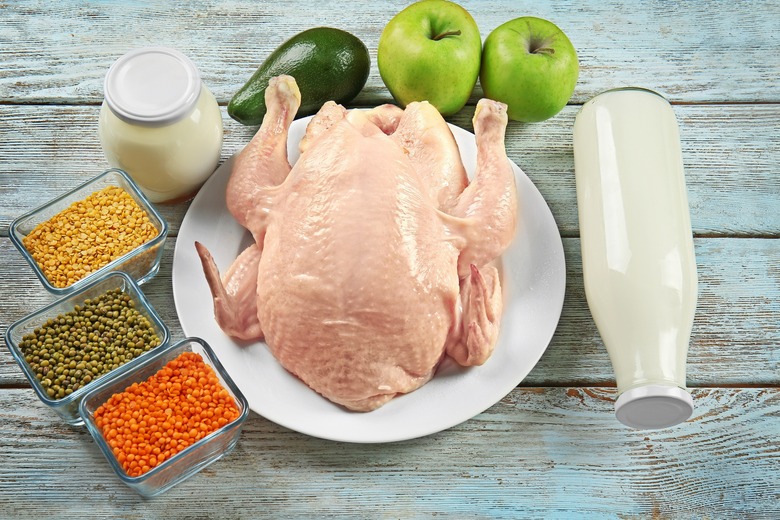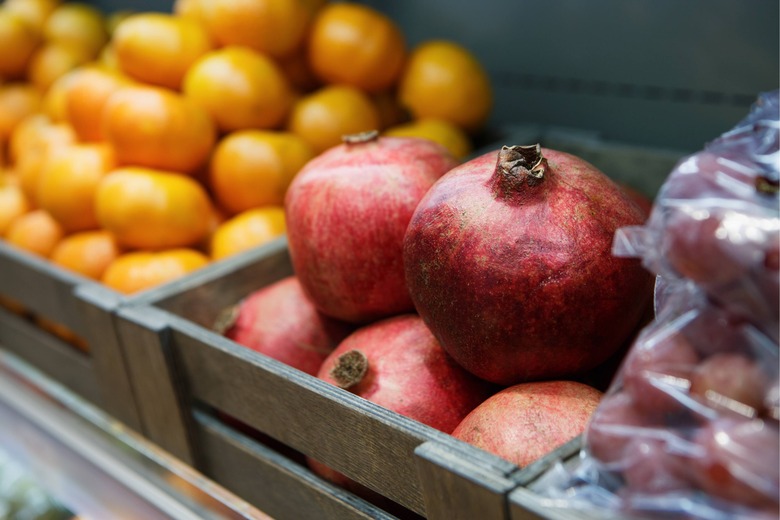14 Brilliant Tips To Save Money At The Grocery Store
Step 1: Find your favorite grocery store. Step 2: Save money when you visit.
Grocery shopping is an inevitable part of grown-up life, and although you spend less money when you cook and eat at home, ingredients can be expensive. Moreover, we, as consumers, are easily lured by attractive packaging and clever marketing strategies.
Lucky for us, there are ways to save and tricks to help us hurdle the money-grabbing obstacles that stand between our bank accounts and the checkout aisle. Some of these strategies may surprise you (because grocery stores are sneaky), some of them simply expand on common-sense practices, and some of them you can put into practice before you even leave the house.
Two of the most important tips on this list are: make a list (and then stick to it), and eat before you go. It's torturous to wander around the store looking at all the food that could satiate your grumbling belly. Find out how to stay focused on the necessities and more by checking out the slideshow below.
Plan Your Meals
In addition to staples like eggs, milk, and bread, have an idea what you plan on making over the next few days and seek out ingredients that can work across multiple recipes. For instance, buy chicken that can work for dinner but then can also be incorporated into salads, soups, and sandwiches. This will help you avoid waste because you will use what you have in its entirety.
Also, try to find recipes with shorter ingredient lists and experiment with spices and seasonings that will make a meal both interesting to eat and big on flavor. Sometimes, something as little as a touch of spice or acid — like lemon juice or tangy feta cheese — can enliven an otherwise flat, boring dish and make it seem special, even if it's super simple.
Buy Efficient Foods
Eating on a budget shouldn't compromise nutrition. Buying whole, raw foods makes you work a little harder in the kitchen but your body and bank account will thank you. Apples, bananas, and sweet potatoes are among the cheapest foods per pound at the store — and they are good for you, too. You can also bulk up your meals with rice, grains, and legumes you find in the dry storage aisle as opposed to canned goods.
Buy In Season
Consistent with the economic principles of supply and demand, prices drop when there is an abundance of an item. Stick to what grows in season and near you to avoid tacked-on costs of shipping and handling. Best of all, when we shop and cook seasonally, ingredients are at their most flavorful. Visit the Pick Your Own website to find seasonal charts tailored to your state.
Make a List
Make a specific list of things you want to buy and stick to it. It will help you focus on the products and ingredients you know you need and keep the extras out of your shopping cart.
Eat Before You Go
The common phrase "your eyes are bigger than the stomach" couldn't be truer or more dangerous when grocery shopping. When we are hungry, everything looks good, and it's easy to get sucked into buying more than you planned.
Keep It Simple
When shopping, stick to the necessities. Do you need those cookies? Do you need that bag of chips? Focus on the priorities because those extra little purchases will really add up during checkout.
Find the Deals
This is a no-brainer: Save big with coupons and sales. However, be vigilant to see if you are actually getting a deal; always look at the price per unit comparisons. You can also check out helpful couponing sites like Coupons.com, Krazy Coupon Lady, and Mambo Sprouts to find great deals.
Also, keep in mind that some newspaper inserts or coupon pamphlets don't actually intend to save you money. Instead, they are there to encourage you to buy stuff you don't need just because you think it's on sale.
Stay Away From “Pre”
Pre-packaged, pre-cut, pre-washed, pre-made: The prefix "pre" denotes unnecessary convenience costs that pull extra dollars and pennies from your pocket. Save money and wash your own veggies, grate your own cheese, and cut your own fruit. You can do it!
Be an Economical Vegetarian
Personal ethics and ideologies aside, from an economic standpoint, meat is expensive. By instituting Meatless Mondays (at a minimum), economic vegetarians can save a great deal at the grocery store. To compensate, look for protein found in a number of other foods like eggs, nuts, and beans.
If going vegetarian is not an option, other, more economical meat options include less popular cuts of meat like chicken thighs or flank steak.
Walk the Perimeter
It's not by chance that the fresh produce, meat, and dairy sections are strewn along the perimeter of the grocery store. It is intentionally designed this way so shoppers must weave past other foods to get to the basic necessities.
Look Around
It's a common sales and marketing technique to put the priciest goods at eye level. Therefore, when shopping, scan the entirety of the shelves to make sure you're getting the best deal. It is also wise to keep an eye on your little ones; products marketed toward children are conveniently placed at their eye level.
Listen to Upbeat Music
Grocery stores intentionally play slow, relaxing elevator music to encourage shoppers to slow down and take their time. It's a business technique proven to get shoppers to buy more than what they need; so next time you head to the store, bring some headphones and listen to something that makes you want to dance.
Put Blinders on While Checking Out
Trashy magazines, candies, gums, mints, and gadgets are all there just innocently begging you to take them home with you while you wait in the checkout line. Resist the urges and keep your eyes on the prize.
Waste Not; Want Not
Stop letting your food go neglected and uneaten — it only makes you spend more money on more food at the grocery store. It is easy to repurpose leftovers and scraps into delicious meals, and don't you dare let that last bit of milk go to waste.
Keeping a clean and organized fridge will not only help you avoid dangerous cross-contamination, but it will also help to stave off bacteria growth like mold, help you save money on food, and help you be a better consumer overall. Feed your belly, not the trash, and check out these eight essential refrigerator organization techniques.














